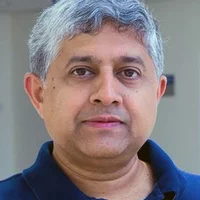Transitions between different dynamical states in cellular and sub-cellular assemblies such as the cytoskeleton and the cell nucleus are at the heart of many changes in biological function.
Theoretical modeling of such systems as densely packed amorphous assemblies has yielded tremendous insight in various other contexts and at different scales, including bird flocks, bacterial colonies and spatial organization in tissues. Motivated by observations of dramatic changes in the dynamics of chromatin within cell nuclei, and the apparent role of confinement geometry, researchers at PSI and JNCASR, Bangalore investigated the transition from rigid to flowing states under active self-propulsion through computer simulations. In their work, now published in Nature Physics, they show that self-propulsion forces larger than a critical magnitude result in fluidization in a manner that resembles the yielding transition in glassy amorphous solids that are subjected to externally controlled cyclic deformation.
Interestingly for biological contexts such as chromatin, their simulations show that both the magnitude of the self-propulsion, as well as the persistence time over which the direction of self-propulsion remains unchanged, combine in interesting and non-trivial ways to control the transition. Such an interplay between force and reorientation rate also changes how the transition occurs when considering different geometries in which the assembly is confined.
Their findings add to a growing body of research at the intersection of cell biology and the physics of complex disordered systems with exciting new insights being uncovered every day.
Contact
Original Publication
Goswami, Y., Shivashankar, G. V., & Sastry, S. (2025). Yielding behaviour of active particles in bulk and in confinement.
Nature Physics. https://www.nature.com/articles/s41567-025-02843-7
DOI: https://doi.org/10.1038/s41567-025-02843-7


